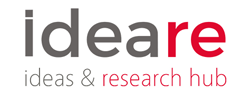From the 17th to the 22nd Idea-Re attended the IEE Quantum Week 2023, a prestigious conference on Quantum Computing, presenting the research “A novel approach to face early pandemics using QUBO models”, where he introduced an innovative optimization algorithm for epidemiological surveillance based on wastewater analysis.
Among the numerous topics addressed during the conference, the following aroused great interest:
- Fault Tolerance & Hardware Improvement for quantum computers in the NISQ era
- Quantum Resource Estimation to determine the resources needed to perform a quantum computation
- “Quantum Inspired” algorithms for combinatorial optimization.
Here some observations.
Fault Tolerance & Hardware Improvement for quantum computers in the NISQ era
Nowadays, the attention of the quantum computing world is focused on solving the complex problem of decoherence. Without a significant progress in the field of error correction, it is difficult to achieve a tangible computational advantage. This is particularly true for quantum optimization algorithms with gate-based models, where the goals are universality and a computational speed-up with respect to classical algorithms.
Quantum Resource Estimation to determine the resources needed to perform a quantum computation
Thinking about quantum computers only in terms of computational speed-up could be short-sighted and such one-dimensional narrative could be limiting. We can ponder questions about further possible advantages of quantum computing, such as energy efficiency. A clear and unambiguous estimate of computational resources in the quantum world is certainly a non-trivial task, but on the other hand a necessary step if we want to embrace the complexity of quantum computation in general.
“Quantum Inspired” algorithms for combinatorial optimization
The advent of increasingly sophisticated quantum hardware has led to an ongoing exploration of quantum and quantum-inspired algorithms. The latter, in particular, could offer a different perspective on a class of real-use cases, such as combinatorial problems. It seems appropriate to continue exploring both quantum and hybrid algorithms for combinatorial optimization, since these can offer a different perspective and complexity.
The world of Quantum Computing is still, in many ways, unexplored. Many challenges still need to be addressed. Nonetheless, developments are fast, both on the hardware and software side. The second quantum revolution is underway, with a consequent deployment of energy on a global level, and it is wise to be part of it, in order to face challenges of the future as a protagonist.
